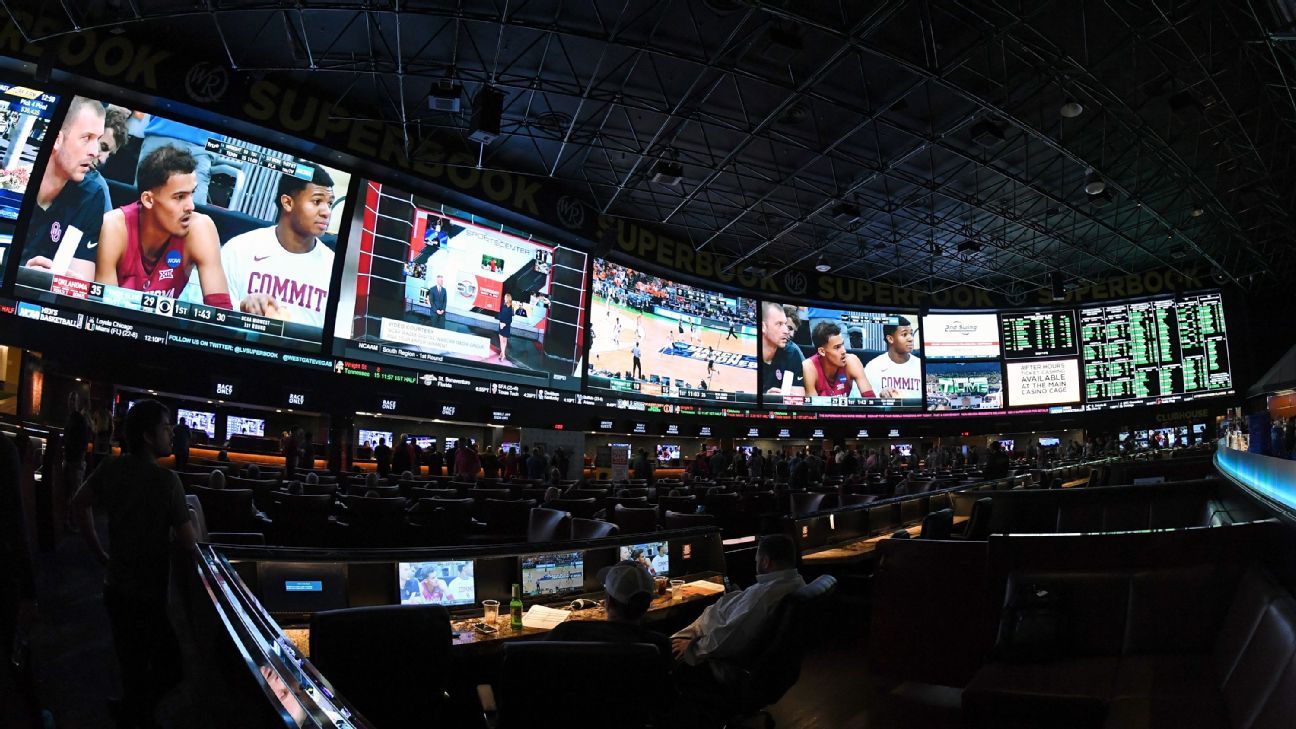While some universities look into possible revenue from legalized sports betting, the NCAA says it remains opposed to that and is focused on protecting student-athletes and the integrity of the games through education and consistent national guidelines.
The NCAA announced Thursday that an internal team of experts has started examining the long-term effect legalized sports betting could have on college sports, including officiating, rules and the use of integrity services.
In May, the United States Supreme Court struck down the federal ban on state-sponsored sports betting, opening a path for states to begin licensing bookmakers. Delaware and New Jersey have begun offering Las Vegas-style sports betting, and Mississippi and West Virginia expect to be up and running by football season.
“While we certainly respect the Supreme Court’s decision, our position on sports wagering remains,” NCAA chief legal officer Donald Remy said in a release. “With this new landscape, we must evolve and expand our long-standing efforts to protect both the integrity of competitions and the well-being of student-athletes.”
While the NCAA studies the issue, Marshall and West Virginia are among the Division I universities interested in receiving a percentage of the amount wagered on college sports. Officials from each university participated in meetings this spring with representatives from the state lottery, governor’s office, the American Gaming Association and Major League Baseball and the NBA and came away with hopes of receiving a 0.25 percent fee based on the amount wagered on college sports in West Virginia.
“The fee would help us with additional resources for us to do what we need to do to deal with this whole process,” Marshall athletic director Mike Hamrick told ESPN on Wednesday. Hamrick was formerly athletic director at the University of Nevada-Las Vegas.
Universities such as Connecticut, Missouri and Rutgers are among the others that have met with professional leagues to discuss getting a fee from sports betting, sometimes referred to as an “integrity fee.”
No state that has legalized sports betting to this point, including West Virginia, has finalized regulations that would enable any sports league or college to receive a fee from sports betting. Nevada sportsbook operators do not pay a fee to leagues or schools, although bookmaker William Hill does have a sponsorship deal with UNLV.
“Legalized sports gambling across the country is rather new, but the NCAA and its members have committed significant resources over the years to policy, research and education around sports wagering,” said Joni Comstock, NCAA senior vice president of championships and alliances. “With student-athlete well-being as the centerpiece, we will continue to build upon these efforts to assist members as they adapt to legalized sports wagering in their states and regions.”
In the past 25 years, prior to the Supreme Court ruling, there have been at least five point-shaving scandals in college sports that have been publicly revealed.
